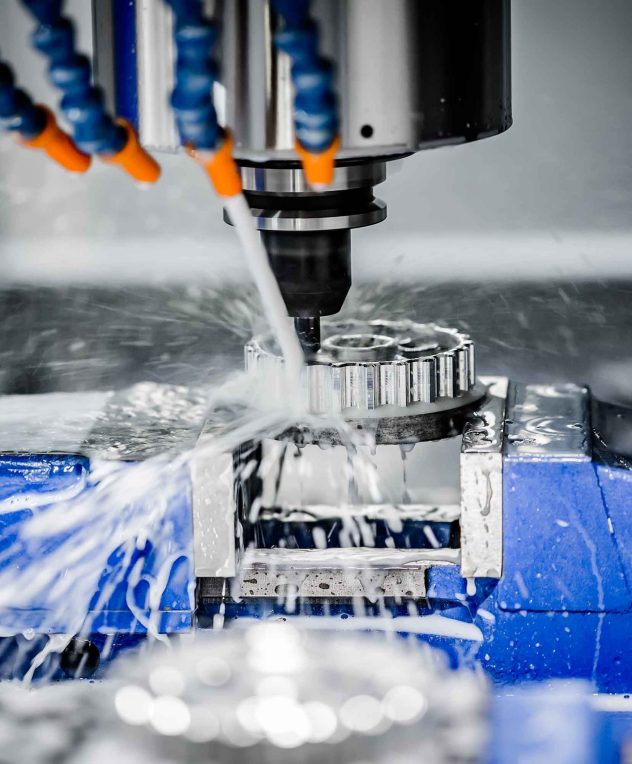
Talent training and demand analysis for precision tool manufacturing
Precision tool manufacturing refers to the industry that uses high-precision machinery, electronics, optics and other technologies to produce tools and equipment that can meet specific functional and performance requirements. Precision tool manufacturing has a wide range of applications in aerospace, automotive, medical, energy and other fields, and is an important force to promote scientific and technological progress and social development.
With the continuous innovation of science and technology and the constant changes of the market, precision tool manufacturing is also facing new development trends and challenges. Among them, intelligence, automation and digitization are the three main directions. These directions put forward higher requirements for the talents of precision tool manufacturing. They not only need to master professional technical knowledge and skills, but also need to have innovative thinking and ability to adapt to complex and changing environments.
Precision tool manufacturing refers to the industry that uses high-precision machinery, electronics, optics and other technologies to produce tools and equipment that can meet specific functional and performance requirements. Precision tool manufacturing has a wide range of applications in aerospace, automotive, medical, energy and other fields, and is an important force to promote scientific and technological progress and social development.
With the continuous innovation of science and technology and the constant changes of the market, precision tool manufacturing is also facing new development trends and challenges. Among them, intelligence, automation and digitization are the three main directions. These directions put forward higher requirements for the talents of precision tool manufacturing. They not only need to master professional technical knowledge and skills, but also need to have innovative thinking and ability to adapt to complex and changing environments.
In order to discuss the talent training and demand analysis of precision tool manufacturing, this paper will elaborate from the following three aspects: talent demand, talent training and talent challenge.
“Talent demand”
Talent demand refers to the demand for the quantity and quality of talents in the precision tool manufacturing industry. According to relevant data, the precision tool manufacturing industry is showing rapid growth worldwide, and it is estimated that by 2025, the market size of this industry will reach 500 billion US dollars. This means that the industry’s demand for talents will continue to increase, especially for high-quality, high-level, and high-skilled talents. According to expert forecasts, by 2025, the precision tool manufacturing industry will need about 10 million professionals, of which about 40% are senior technical personnel, 30% are intermediate technical personnel, 20% are primary technical personnel, and 10% are management and service personnel. talent.

talent training
Talent training refers to the ways and means of training and promoting talents in the precision tool manufacturing industry. In order to meet the industry’s demand for talents, it is necessary to cultivate talents from multiple levels. First of all, at the educational level, it is necessary to strengthen the education investment and reform of precision tool manufacturing related majors, establish an education system and curriculum system that are compatible with the needs of the industry, and cultivate students’ basic knowledge and practical ability. Secondly, at the training level, it is necessary to strengthen the training and renewal of in-service personnel, establish a training system and standard system coordinated with the development of the industry, and improve the professional skills and innovation capabilities of personnel. Finally, at the exchange level, it is necessary to strengthen the exchange and introduction of outstanding talents at home and abroad, establish an exchange platform and mechanism that is in line with the international level, and expand the horizons and ideas of personnel.

talent challenge
Talent challenges refer to the difficulties and problems faced by the precision tool manufacturing industry in the process of talent training. Among them, there are mainly the following aspects: First, the talent gap, that is, there is a gap in quantity and quality between the industry’s demand for talents and the supply of talents, resulting in a low degree of talent matching and satisfaction. The second is brain drain, that is, the flow and competition of talents inside and outside the industry, resulting in low stability and loyalty of talents. The third is the cost of talent training, that is, the industry needs to invest a lot of time, money and resources in the training of talents, resulting in low efficiency and low return on talent training.
Talent challenges refer to the difficulties and problems faced by the precision tool manufacturing industry in the process of talent training. Among them, there are mainly the following aspects: First, the talent gap, that is, there is a gap in quantity and quality between the industry’s demand for talents and the supply of talents, resulting in a low degree of talent matching and satisfaction. The second is brain drain, that is, the flow and competition of talents inside and outside the industry, resulting in low stability and loyalty of talents. The third is the cost of talent training, that is, the industry needs to invest a lot of time, money and resources in the training of talents, resulting in low efficiency and low return on talent training.
In short, the talent training and demand analysis of precision tool manufacturing shows the important role and value of talents in promoting the development of precision tool manufacturing. However, in the process of talent cultivation, there are also some challenges and problems, which need to be solved by strengthening policy guidance, optimizing incentive mechanisms, and strengthening win-win cooperation. Only by continuously cultivating and upgrading talents can we grasp the opportunities of development and win the future.







Leave a Reply